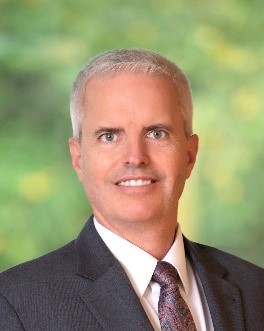How Hospitals Can Build Trust to Bolster Credibility Among Patients According to ABAM Diplomate Paul E. Gourley, DO, MBA, FACEP, CPE
 Trust and credibility are the foundation of the health care provider-patient relationship. When patients trust their providers, they are more likely to listen to their advice and instructions. Additionally, as better listeners, they are more likely to comply with treatment plans. Furthermore, increased compliance can lead to better outcomes, resulting in a better overall experience for the patient.
Trust and credibility are the foundation of the health care provider-patient relationship. When patients trust their providers, they are more likely to listen to their advice and instructions. Additionally, as better listeners, they are more likely to comply with treatment plans. Furthermore, increased compliance can lead to better outcomes, resulting in a better overall experience for the patient.
Providers who lose the trust and credibility of their patients will encounter difficulty not only in communicating healthcare advice but also in retaining their patients. Moreover, the provision of healthcare is a team effort based on trust. Team members who do not trust each other are less efficient and effective, which increases the risk of mistakes that can contribute to a bad outcome.
The key to establishing credibility with patients is arming them with knowledge. Ultimately, patients want to know a hospital’s or provider’s capability to deliver quality healthcare. Building that credibility can start before a patient even enters the hospital’s doors. With today’s technology platforms, hospitals can easily display their provider information, accreditations, patient safety data, and measures of various healthcare outcomes that will help form the basis of credibility.
Establishing and maintaining trust comes from following through on what a hospital says it will deliver. Additionally, providing effective lines of communication with patients and maintaining transparency in all aspects of their health care further builds and maintains that trust. Furthermore, hospitals should strive to make patients feel valued as individuals, and that their hospital has their best interests at heart. Patients who feel informed and valued are much more likely to trust a facility even in the face of a bad outcome.
Without trust and credibility, the provider-patient relationship can unravel. It does not matter if a provider has the best credentials, impeccable skills, or both; when patients lose trust, they will most likely seek care from a different provider. On the other hand, the stronger the trust and credibility, the stronger the provider-patient relationship, leading to improved communication, better compliance, and more desirable health outcomes.
Paul E. Gourley, DO, is the global medical director of the TRICARE Overseas Program (TOP) at International SOS Government Services, where he works closely with TOP regional medical directors worldwide to oversee the ongoing delivery of high-quality healthcare services to more than 500,000 TRICARE beneficiaries overseas.






